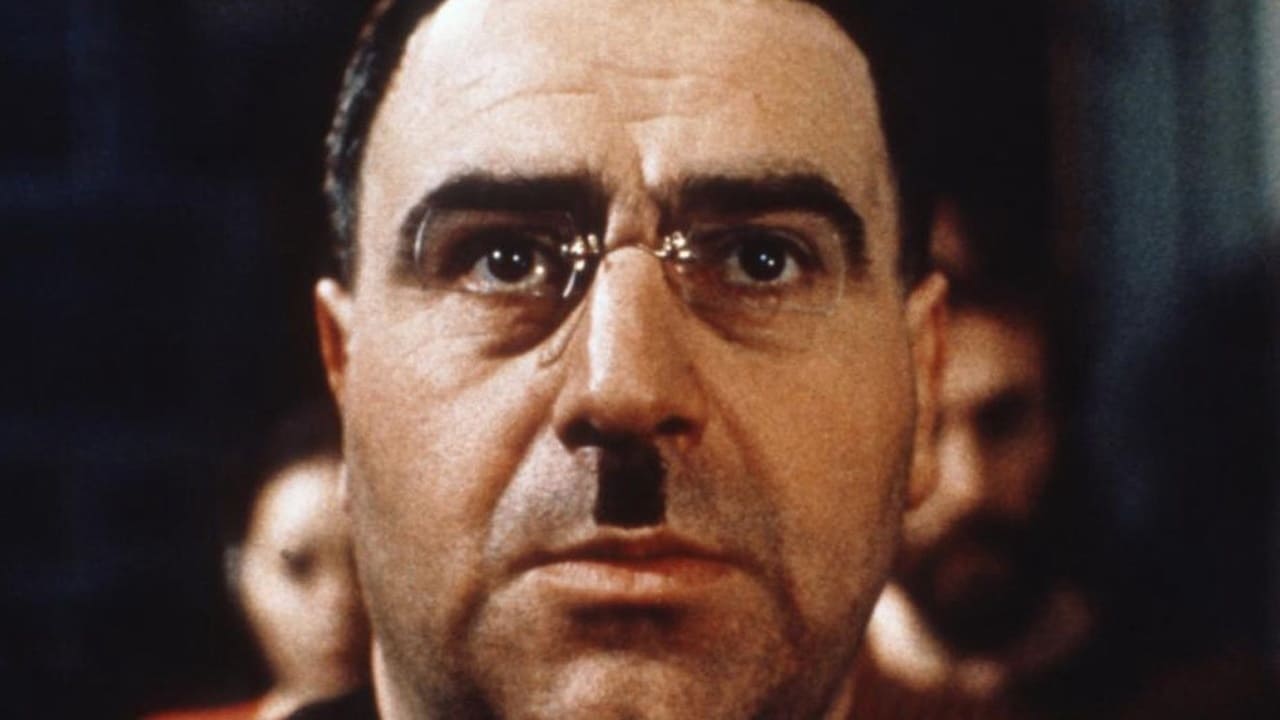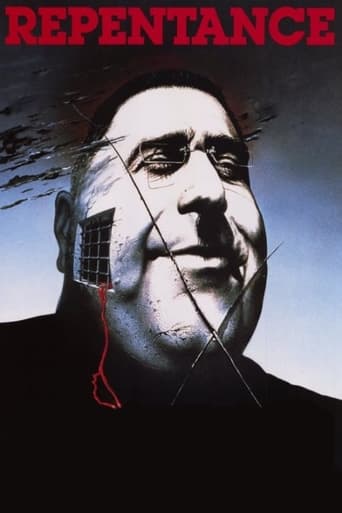

This film was masterfully orchestrated with its use of allusion and cinematically pleasing to the viewer. The story begins with a woman baking a cake while a man who sits and eats the cake brings up, rather tearfully, the recent death of an important local mayor. Varlam Aravidze the source of focus in the film is a recently deceased dictator-like mayor that through his govern established the use of many Stalinistic ideals and utilized countless Machiavellian techniques to subdue the people of the town. The film then goes through a surreal like dream sequence in which the woman, a former victim of this cruel regime, baking the cakes thinks of these injustices and creates a world in which proper punishment, the exhumation of his corpse, is administered for the crimes he committed. Through this dream sequence the director skillfully oscillates between the past and the apparent dream present back to the real present. During which many allusions are made to the actual Stalin regime and the damages inflicted on the people of the time. Despite the time period being set during the stagnation era the after effects of the administration are still profound in this films portrayal of what ends up being a tragedy caused by the after effects of the administration. The quote "the time we live in has Varlam arrested" might have been a literal reference to this time period of stagnation in which Varlam's older Stalinistic practices were no longer widely condoned but as can be later be seen through of the film, cannot be simply ignored. The movie was definitely much more entertainment based than others that might have come before it that might have only served ideological purposes. The movie was very insightful in Soviet customs which can be seen through the funeral scene that might seem odd but familiar in the ritual aspect to foreigners. The time skips and changes in dream planes added a level of ironic enough realism that made the social commentary on the consequences of ignoring the past even more palpable to a viewer. Overall the film was great and worth watching the full 150 minutes of it.
... View Morefor me, as viewer from East, in 1990 , it was an revelation. not as cold portrait of totalitarian regime. not as page from the indictment against the Communism.but as reflection of its essence. a film who reflects and reminds the history of Europe. using a memorable character who has the gift to seduce and horrify. Varlaam is the image of a system. and not it is the subject in fact but the testimony who defines the others. a film about redemption and about memory. about the change and about the rules of dictatorship. extraordinaries images. and the hill of the Abuladze's fight for his art. it is easy to discover it as a beautiful, profound, philosophical film. but, in fact, it is only a testimony about a world's survive. not a parable. not sketch of a cruel regime. but a form of remember of people, values, sacrifices and the empty body of a dictatorship. for me, in 1990, it was a revelation. and, today, it has the same status. because, more than a story about evil, it is a warning about the importance of decision.
... View MoreFor me, that's what a true movie should do: make you think, discuss what you saw with others and, as importantly, with yourself... So many incredible scenes... So many questions, for which you should find an answer suitable for yourself... Many things seem ingénues and at the same time a little absurd: the medieval guard in the middle of the 20th century, the Barateli court scene, the deadman being dug from his grave... makharadze plays in a way that makes you sit open-mouthed... the scene of killing the sun is a masterpiece, as well as the scene of Abel on a confession... simply brilliant...The character of Varlam Aravidze is also an incredible creation of both Makharadze and Abuladze: can you imagine Beria, Stalin and Hitler fused in one person? well, you get this person here, and the horror is that this person looks just like you and me, not a monster everyone sees drawn in their fantasies...Quotes, dialogues and phrases take special place in this film... By listening to how Varlam talks, how he addresses people, you get a template of how a person can become a tyrant, dictator... "We will catch the black cat in a dark room, even if this cat is not in the room"and, of course the question of the century: "is it worth to kill millions to save hundreds of millions?" publicly everyone will say "no, it's not"... but in reality...I'll finish with one of the main things said in the movie, one of the reasons this film is a masterpiece: "will this road lead me to the temple?"...."why do i need a road that does not lead to the temple?" these are the questions of the 20th century as well... you decide what a "temple" is and whether or not we are on the proper road...this film truly deserves all the praise it got from the world community...
... View MoreThis wonderful Georgian film emerged from the last years of the Soviet regime, but seems to have disappeared without trace. The final film of a trilogy by the veteran film-maker Tengiz Abuladze, it portrays a composite monster, Varlam (Hitler moustache, Mussolini shirt & braces, Stalin boots, Beria pince-nez) and his equally grotesque son Abel, both played by the same actor.The film has a surrealist, dreamlike quality about it, framed by initial and final scenes in a cake-shop and with police almost comic in medieval armour. The main actions which initiate the plot are surrealist with the repeated exhumation of Varlam's corpse. The two monstrous central characters are no more than mayors of a small Georgian town - but there is nothing comic about their actions and the reign of terror they bring to the community. The elements of tyranny are revealed economically, with hints of atrocities and disappearances but only one brief torture scene. The overall message is that of personal responsibility. The tyrannical regime is not an anonymous bureaucracy but the deliberate creation of evil men. And the final repentance is a horrific recognition of those responsibilities. An unmissable film, beautifully made and superbly acted - if you can find it.
... View More